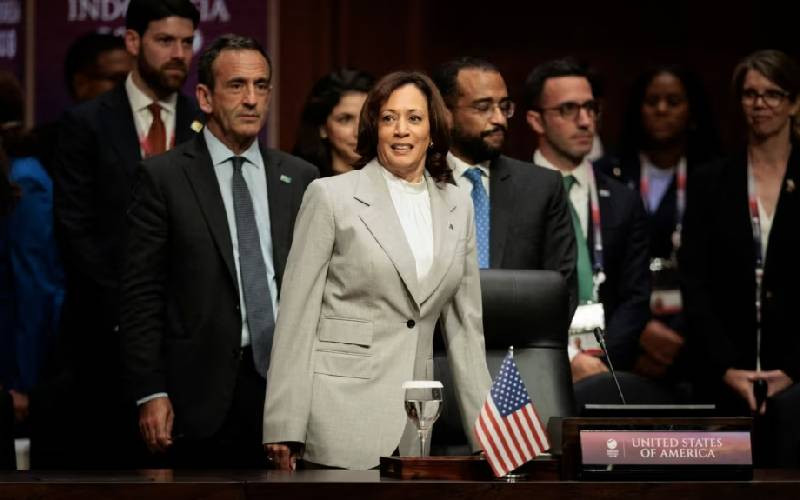
A chair with Myanmar's flag was left empty as Vice President Kamala Harris spoke with Southeast Asian leaders during the U.S.-ASEAN, or Association of Southeast Asian Nations, summit in Jakarta hosted by outgoing chair Indonesia.
"The United States will continue to press the regime to end the horrific violence to release all those unjustly detained and to reestablish Myanmar's path to inclusive democracy," Harris said at the opening of the summit Wednesday.
"And we will continue to support ASEAN's five-point consensus," she added, referring to the group's 2021 demands on the crisis triggered by the February 2021 military coup, which include immediate cessation of violence and constructive dialogue facilitated by ASEAN.